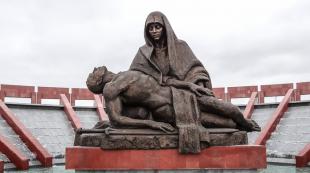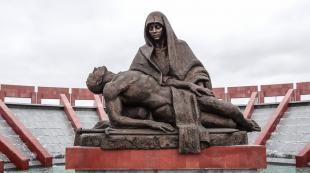HR inspector interview questions. Consultations on personnel issues Questions for the position of HR specialist
A hiring test is not established for: - persons applying for work through a competition for filling the corresponding position, conducted in the manner prescribed by law; — pregnant women; - persons under the age of eighteen; — persons who have graduated from educational institutions of primary, secondary and higher vocational education and are entering work for the first time in their specialty; — persons elected (selected) to an elective position for paid work; — persons invited to work by way of transfer from another employer as agreed between employers; - in other cases provided for by the collective agreement and the legislation of the Russian Federation. 4. The period of temporary disability of the employee and other periods when he was actually absent from work are not included in the probationary period. 3. General grounds for termination of an employment contract. Day of dismissal.
How to pass an interview for a personnel officer?
To minimize the company’s risks, the HR inspector must have excellent knowledge of labor legislation and be able to use this knowledge.
However, in addition to completing documentation, the HR inspector communicates a lot with employees - advising on labor legislation issues and regulating conflict situations.
Info
The criterion for the success of an HR inspector is the absence of orders from inspection bodies, penalties from government agencies, complaints or complaints from company employees.
What competence should a personnel inspector have to perform such a responsible job? What professional standards are required of him? Reference.
Author's questions at an interview for a personnel officer
The validity of the student agreement is extended for the duration of the student’s illness, military training, and in other cases provided for by laws and other regulatory legal acts.
During the validity period of the student agreement, its content can be changed only by agreement of the parties.
Apprenticeship is organized in the form of individual, team, course training and other forms.
Attention
The apprenticeship time during the week should not exceed the standard working time established for workers of the appropriate age, profession, specialty when performing the relevant work.
Employees undergoing training in the organization, by agreement with the employer, can be completely released from work under an employment contract or perform this work on a part-time basis.
Analysis of the work of the HR inspector
Get the full text - do not request information about the employee’s health status, with the exception of information that relates to the issue of the employee’s ability to perform a job function; — transfer the employee’s personal data to employee representatives and limit this information only to those employee personal data that are necessary for the said representatives to perform their functions. 5. Duration of working hours ANSWER 1. Normal working hours do not exceed 40 hours 2.
Login to the site
To whom do you usually write letters, memos, reports? Letters and necessary documents are sent to the insurance company, the Pension Fund, the bank servicing the company and to other institutions if necessary.
As well as reports to heads of departments within the company.
What is usually the content of this written work? Basically, these are lists of employees selected according to some criterion, the necessary data about them, their statements, or others.
personnel information. How often do you have to write them? Monthly What calculations do you have to do? Calculation of employees' length of service.
Answers to test tasks in the category “HR administration”
I believe it is unnecessary to explain that penalties for your oversight or inability to communicate with such “clients” will be an extremely unpleasant surprise for your management.
Direct manager and senior management of the company.
This is the default. I think no comments are required. Of course, clients are also company employees and job candidates from the external labor market.
Dissatisfaction and complaints negatively affect the reputation of the company and personnel services.
Especially if it is taken out into the external environment. The consequences can be much sadder than is commonly believed.
Employer branding rules. Ideally, all issues in working with clients that are within your competence should not be brought up to management.
The worst case scenario is that a key client comes to your management and complains that you have not resolved their issue, which is within your competence.
HR inspector interview questions
There are those that are suitable for each other or those that are not. The assessment of the candidate’s knowledge, skills and abilities must be carried out by an expert, a professional equal (or higher) in status/position of the vacant position. If you, a search and selection specialist, are not a professional in the field of personnel accounting and engage an HR expert to evaluate candidates, make sure that the assessment is unbiased.
This means that you must have a clear description of the requirements for the candidate, the tasks facing him, the criteria for assessing knowledge and skills.
Why do you need expert help? He has an “ideal” set of knowledge and skills, confirmed by practical experience, knows the subtleties and nuances of the profession, and is the bearer of the company’s corporate culture.
When communicating with a professional, the candidate opens up and speaks freely not only about his successes and achievements, but also about problem areas.
Questions during an interview with a HR specialist
How much control do you have? General Director, Head of HR Department How many contacts do you have with your immediate supervisor? Every day, throughout the working day How will your manager know that your work is of lower quality than standard requirements? Errors in records, violation of the order of paperwork, untimely execution of orders, etc. How many people do you control? - What is this control? — What do you have to plan or organize? Organize your work taking into account incoming documents and applications, as well as deadlines.
Personnel officer │correct; │ │ │ │ │ │workers │ │must: │b) do nothing │ │ │ │ │ │ │ │ │do nothing; │ │ │ │ │ │ │ │ │c) recognize │ │ │ │ │ │ │ │ │incorrect entry │ │ │ │ │ │ │ │ │invalid│ │ │ │ │ │ │ │ │and deposit │ │ │ │ │ │ │ │ │correct │ │ │ │ │ │ │ │ │record; │ │ │ │ │ │ │ │ │d) other │ │ │ │ │ ├────────────┼─────── ─────────┼── ────────────────┼────────────────┼─┼─┼─┼─ ┤ │Conduct │Knowledge of the rules │Work book │a) create a new│ │ │ │ │ │audit │employee│employee │work book;│ │ │ │ │ │work │books │lost, torn, │b) draw up │ │ │ │ │ │books │ │stained.
This habit of yours will easily outweigh small gaps in your knowledge and qualifications in the eyes of your manager.
Interest in you will be higher than in a more qualified candidate with a gloomy face, showing that he is doing everyone a favor by his presence in the workplace.
If I give pluses to these three questions, then there is a basis for working with this person. He has good habits and all the makings of becoming an excellent employee. Everything else can be taught. Thank you for your interest in the article.
Interview questions for a HR inspector
The term “competence” comes from the Latin “competere”, meaning “to be acceptable”, and is generally used to recognize that a person has sufficient professional knowledge and skills to solve assigned tasks or perform certain duties. Currently, companies are paying more and more attention to assessing the competence of specialists when making decisions related to their hiring, promotion and professional growth.
By the way. Professional standards are structured requirements for the quality and content of work in a certain area of professional activity.
An accurate description of the “ideal” candidate and the position for which he is being selected ensures the most effective search and selection of the right people.
The description begins with defining the employee’s area of responsibility and main tasks.
Question: Why was the employee’s work as a Komsomol organizer for a group of secondary schools of the Komsomol district committee not counted toward his municipal service experience?
Answer: The conditions for assigning a long-service pension to municipal employees are determined by the regulatory legal acts of the constituent entities of the Russian Federation and municipal legal acts. Therefore, the periods that are subject to inclusion in the length of service of municipal service may differ.
At the same time, judicial practice should be taken into account. Thus, according to the Decision of the Novovyatsky District Court of Kirov dated June 17, 2013 in case No. 2-354/2013, as well as the Decision of the Kotelnichsky District Court (Kirov Region) dated March 12, 2014 No. M-3/50/2014 2-3/65 /2014 2-3/65/2014~M-3/50/2014, “proof that the Komsomol Central Committee was not part of the structure of government bodies is that neither the USSR Law of 07/05/1978 “On the Council of Ministers of the USSR” , nor the Law of the RSFSR of 08/03/1979 “On the Council of Ministers of the RSFSR” did not indicate the bodies of the Komsomol in the list of ministries and state committees of the USSR and the RSFSR.
Work in these bodies does not apply to public service. In the Decree of the President of the Russian Federation of September 20, 2010 No. 1141 “On the list of positions, periods of service (work) in which are included in the length of service of the state civil service for the assignment of pensions for the length of service of federal state civil servants” there are no positions held in the Central Committee of the Komsomol or its bodies, which would relate to civil service positions.”
Familiarization with the report on the employee
Question: Is the employer obliged to familiarize the person with the memo written in his name? And on what basis?
Answer: Since this issue is not regulated at the legislative level, it is recommended to make a copy of the report, which should be familiarized to the employee. In any case, the employee will have to familiarize himself with the contents of the report, since on the basis of this document, in accordance with Art. 193 of the Labor Code of the Russian Federation, he must provide an explanatory note. Also, if the employee makes a written request, then, on the basis of Art. 62 of the Labor Code of the Russian Federation, the employer is obliged to provide him with copies of documents related to work.
If the memorandum is drawn up for a civil servant, then on the basis of paragraphs. 3 clause 8 art. 59 of Federal Law No. 79 of July 27, 2004 “On the State Civil Service of the Russian Federation”, the employer is also obliged to familiarize him with the content of the complaint based on the results of an internal audit.
The nuances of scheduling vacations
Question: Is it necessary to include non-vacation days for other years (including those provided for hazardous conditions and Chernobyl disasters) in the vacation schedule?
Answer: There is no official procedure for filling out the vacation schedule. In the unified form No. T-7 there is column 5, where you can enter the total number of vacation days for each employee, including the required additional and previously unused days. This will make it easier for HR officers to keep records, and for employees to check, if necessary, whether all rest days have been used.
The correct date of dismissal and the possibility of withdrawing the resignation letter
Question: A working pensioner wrote a letter of resignation of her own free will on the last day of her vacation, which according to the calendar falls on a day off. How to correctly issue a dismissal order: on the next working day or the previous working day? And the second question. We would like to hire a temporary person for the duration of her vacation, who is then planned to be transferred to a permanent position. Are there any legal ways to prevent a former employee from withdrawing his resignation letter?
Answer: Based on Letter No. 863-6-1 of Rostrud dated June 18, 2012, dismissal must be made on the first working day following the day of termination of the employment contract. The employer must issue all necessary documents on the day of termination of the employment contract, that is, on the last working day. This may also happen on the eve of a vacation followed by dismissal.
As for the right to withdraw a resignation letter, there may be two situations. If an employee has written an application for leave with subsequent dismissal, then he can withdraw it only before the start of the leave. The second situation is if the employee wrote 2 applications: one for leave, the second for dismissal. According to the law, the employee retains the right to withdraw his application for dismissal, unless another employee is invited to take his place in writing. Moreover, it is important to understand that this invitation must be in writing.
Duration of an employment contract with an employee from Belarus
Question: For what period should an employment contract be concluded with a citizen of Belarus - fixed-term or indefinite, if he has a residence permit in the country for a limited period?
Answer: According to the Labor Code of the Russian Federation, if there are no grounds for concluding a fixed-term employment contract, it is necessary to conclude an open-ended contract. At the same time, it must be taken into account that, according to paragraph 5 of Art. 97 of the “Treaty on the Eurasian Economic Union”, the period of temporary stay (residence) of a worker from Belarus is determined by the duration of the employment or civil law contract.
It is also recommended to notify the Ministry of Internal Affairs about this in connection with the conclusion of an employment contract with a foreign citizen. But this is more to protect yourself. Since, according to Resolution of the Supreme Court of the Russian Federation of May 30, 2017 No. 78-AD17-19, employers may not notify a citizen of Belarus about hiring a citizen of Belarus.
Persons under the age of eighteen;
Persons who have graduated from educational institutions of primary, secondary and higher vocational education and are entering work for the first time in their specialty;
Persons elected (selected) to an elective position for paid work;
Persons invited to work by way of transfer from another employer as agreed between employers;
In other cases provided for by the collective agreement and the legislation of the Russian Federation.
- 4. The period of temporary disability of the employee and other periods when he was actually absent from work are not included in the probationary period.
3. General grounds for termination of an employment contract. Day of dismissal.
ANSWER
1. The grounds for termination of an employment contract are:
Agreement of the parties ( article 78);
Expiration of the employment contract ( paragraph 2 of article 58), except for cases where the employment relationship actually continues and neither party has demanded its termination;
Termination of an employment contract at the initiative of the employee ( article 80);
Termination of an employment contract at the initiative of the employer ( article 81);
Transfer of an employee, at his request or with his consent, to work for another employer or transfer to an elective job (position);
An employee’s refusal to continue working due to a change in the owner of the organization’s property, a change in the jurisdiction (subordination) of the organization or its reorganization ( Article 75);
An employee’s refusal to continue working due to a change in the essential terms of the employment contract ( article 73);
Refusal of an employee to transfer to another job due to health conditions in accordance with a medical report ( part two of article 72);
An employee’s refusal to transfer due to the employer’s relocation to another location ( part one of article 72);
Circumstances beyond the control of the parties ( article 83);
Violation of the rules for concluding an employment contract, if this violation excludes the possibility of continuing work ( article 84).
2. In all cases, the day of dismissal of the employee is the last day of his work.
4. Transfer of employee personal data
ANSWER
1. When transferring personal data of an employee, the employer must comply with the following requirements:
Do not disclose the employee’s personal data to a third party without the employee’s written consent, except in cases where this is necessary to prevent a threat to the life and health of the employee;
Do not disclose the employee’s personal data for commercial purposes without his written consent;
Warn persons receiving the employee's personal data that this data can only be used for the purposes for which it was communicated, and require these persons to confirm that this rule is observed. Persons receiving the employee’s personal data are required to observe a regime of secrecy (confidentiality).
Transfer the employee’s personal data within one organization in accordance with the local regulatory act of the organization, with which the employee must be familiarized with signature;
Allow access to personal data of employees only to specially authorized persons, while these persons should have the right to receive only those personal data of the employee that are necessary to perform specific functions;
Do not request information about the employee’s health status, with the exception of information that relates to the issue of the employee’s ability to perform a job function;
Transfer the employee’s personal data to employee representatives and limit this information only to those employee personal data that are necessary for the said representatives to perform their functions.
ANSWER
- 1. Normal working hours do not exceed 40 hours 2. Normal working hours are reduced by:
16 hours per week - for workers under the age of sixteen;
5 hours per week - for employees who are disabled people of group I or II;
4 hours per week - for workers aged sixteen to eighteen years;
4 hours a week or more - for workers engaged in work with harmful and (or) dangerous working conditions.
6. Annual paid holidays
ANSWER
- 1. Employees are granted annual leave while maintaining their place of work (position) and average earnings. Annual basic paid leave is provided to employees for 28 calendar days.
7. Procedure, place and terms of payment of wages
ANSWER
1. When paying wages, the employer is obliged to notify each employee in writing about the components of the wages due to him for the relevant period, the amounts and grounds for deductions made, as well as the total amount of money to be paid.
The form of the pay slip is approved by the employer.
Wages are paid to the employee, as a rule, at the place where he performs the work or transferred to the bank account specified by the employee under the conditions determined by the collective agreement or employment contract.
The place and timing of payment of wages in non-monetary form are determined by a collective agreement or employment contract.
Wages are paid directly to the employee, unless a different method of payment is provided for by law or employment contract.
Wages are paid at least every half month on the day established by the organization’s internal labor regulations, collective agreement, or employment contract.
If the payment day coincides with a weekend or non-working holiday, wages are paid on the eve of this day.
Payment for vacation is made no later than three days before it starts.
8. What is included in the organization’s local regulations
ANSWER
Local regulations include decisions made at the level of an individual specific organization.
Collective agreements, Regulations on the expert commission, Internal labor regulations, Regulations on remuneration, Regulations on bonuses, etc.
9. What does a change of owner in an organization entail for an employee?
ANSWER
A change in the owner of the organization’s property (from the point of view of the Civil Code of the Russian Federation, in this case we should talk about the transition (transfer) of ownership of property), a change in the jurisdiction (subordination) of the organization, as well as during its reorganization (merger, accession, division, spin-off, transformation - see Article 57.58 of the Civil Code of the Russian Federation) is not a basis for terminating employment contracts with employees of the organization.
Termination of an employment contract with an employee is possible only with his written disagreement (application) to work in this changed organization (dismissal under clause 6 of Article 77 of the Labor Code of the Russian Federation).
Reduction of staff or number of employees by the new owner is possible only after state registration of the transfer of ownership rights (the date of making the relevant records of rights in the Unified State Register of Rights).
10. Student agreement
ANSWER
An employer has the right to conclude an apprenticeship agreement for vocational training with a job seeker, and an apprenticeship agreement for on-the-job retraining with an employee of a given organization. An apprenticeship contract with a job seeker is civil and regulated civil law and other acts containing civil law norms. An apprenticeship contract with an employee of this organization is additional to the employment contract and is regulated by labor legislation and other acts containing the norms of the employment contract.
The student agreement must contain: names of the parties; an indication of a specific profession, specialty, qualification acquired by the student; the employer’s obligation to provide the employee with the opportunity to study in accordance with the apprenticeship contract; the employee’s obligation to undergo training and, in accordance with the acquired profession, specialty, qualification, to work under an employment contract with the employer for the period established in the apprenticeship contract; duration of apprenticeship; amount of payment during the apprenticeship period.
An apprenticeship contract is concluded for the period necessary to train for a given profession, specialty, or qualification.
The student agreement is concluded in writing in two copies.
The student agreement is valid from the date specified in this agreement for the period stipulated by it.
The validity of the student agreement is extended for the duration of the student’s illness, military training, and in other cases provided for by laws and other regulatory legal acts.
During the validity period of the student agreement, its content can be changed only by agreement of the parties.
Apprenticeship is organized in the form of individual, team, course training and other forms.
The apprenticeship time during the week should not exceed the standard working time established for workers of the appropriate age, profession, specialty when performing the relevant work.
Employees undergoing training in the organization, by agreement with the employer, can be completely released from work under an employment contract or perform this work on a part-time basis.
During the period of validity of the apprenticeship contract, employees cannot be involved in overtime work or sent on business trips not related to the apprenticeship.
During the apprenticeship period, students are paid a stipend, the amount of which is determined by the student agreement and depends on the profession, specialty, qualification received, but cannot be lower than that established by federal law minimum wage.
The work performed by the student during practical classes is paid at established rates.
11. Medical examinations of certain categories of workers.
ANSWER
Employees engaged in heavy work and work with harmful and (or) dangerous working conditions (including underground work), as well as in work related to traffic, undergo mandatory preliminary training (upon entry to work) at the expense of the employer. and periodic (for persons under the age of 21 - annual) medical examinations (examinations) to determine the suitability of these workers to perform the assigned work and prevent occupational diseases. In accordance with medical recommendations, these employees undergo extraordinary medical examinations (examinations).
12. Responsibilities of the employer to ensure safe conditions and labor protection
ANSWER
The employer is obliged to provide:
Safety of workers during the operation of buildings, structures, equipment, implementation of technological processes, as well as tools, raw materials and supplies used in production;
Application of personal and collective protective equipment for workers;
Working conditions at each workplace that meet labor safety requirements;
Work and rest schedule for employees;
Purchasing and issuing, at our own expense, special clothing, special shoes and other personal protective equipment, flushing and neutralizing agents in accordance with established standards to workers engaged in work with harmful and (or) dangerous working conditions, as well as in work performed in special conditions. temperature conditions or related to pollution;
Training in safe methods and techniques for performing work on labor protection and providing first aid in case of accidents at work, instruction in labor protection, on-the-job training and testing of knowledge of labor protection requirements, safe methods and techniques for performing work;
Preventing from working persons who have not undergone training and instructions on labor protection, internship and testing of knowledge of labor protection requirements in accordance with the established procedure;
- organizing control over the state of working conditions in the workplace, as well as over the correct use of personal and collective protective equipment by employees;
Carrying out certification of workplaces according to working conditions with subsequent certification of work on labor protection in the organization;
Organize, at our own expense, mandatory preliminary (upon employment) and periodic (during employment) medical examinations (examinations) of employees, extraordinary medical examinations (examinations) of employees at their requests in accordance with a medical report, while maintaining their place of work (positions) and average earnings at the time of undergoing the specified medical examinations (examinations);
Preventing employees from performing their job duties without undergoing mandatory medical examinations (examinations), as well as in the case of medical contraindications;
Informing workers about labor conditions and safety in the workplace, about the existing risk of damage to health and the compensation they are entitled to and personal protective equipment;
Providing state labor protection management bodies, state supervision and control bodies, trade union control bodies over compliance with labor and labor protection legislation with information and documents necessary for them to exercise their powers;
Taking measures to prevent emergency situations, preserve the life and health of workers in the event of such situations, including providing first aid to victims;
Investigation and recording of industrial accidents and occupational diseases;
Sanitary, medical and preventive services for workers in accordance with labor protection requirements;
Unimpeded access to officials of state labor protection authorities, state supervision and control bodies over compliance with labor legislation and other regulatory legal acts containing labor law standards, bodies of the Social Insurance Fund of the Russian Federation, as well as representatives of public control bodies for the purpose of conducting inspections of conditions and safety labor in the organization and investigation of industrial accidents and occupational diseases;
Fulfillment of instructions from officials of state supervision and control bodies over compliance with labor legislation and other regulatory legal acts containing labor law norms, and consideration of submissions from public control bodies;
Compulsory social insurance of workers against industrial accidents and occupational diseases;
Familiarization of workers with labor protection requirements;
Development and approval, taking into account the opinion of an elected trade union or other body authorized by employees, of instructions on labor protection for employees;
Availability of a set of regulatory legal acts containing labor protection requirements in accordance with the specifics of the organization’s activities.
13. In what cases is it necessary to organize a labor protection service?
ANSWER
In order to ensure compliance with labor protection requirements and monitor their implementation, in each organization carrying out production activities with more than 100 employees, a labor protection service is created or the position of a labor protection specialist is introduced with appropriate training or experience in this field.
In an organization with 100 employees or less, the decision to create an occupational safety service or introduce the position of an occupational safety specialist is made by the employer, taking into account the specifics of the organization’s activities.
If there is no occupational safety service (occupational safety specialist) in the organization, the employer enters into an agreement with specialists or organizations providing services in the field of occupational safety.
The structure of the labor protection service in the organization and the number of labor protection service employees are determined by the employer, taking into account the recommendations of the federal executive body for labor.
The work of a CS specialist consists of knowing his tasks and the ability to competently conduct everyday work, which is very diverse. In the current conditions of minimizing the number of CS, due to the appointment of young and “unexplored” personnel officers are usually overloaded. HRM faculties and courses are dominated by academicism rather than practice. Based on this, a kind of “compass” is proposed for developing your direct course towards professionalism.
Ch. 1. Entering and mastering personnel work.
- Providing the necessary personnel. Planning of personnel needs (quantity, quality, timing) that meets business objectives today and for the future.
- Development and implementation of a personnel search and selection system: sources of selection, content of applications for vacancies, mass selection technology.
- Registration of hiring, dismissal, transfer, etc.
- Storage of tr. books and their accounting, personal sheets, maintaining personnel documentation in accordance with the nomenclature of files.
- Filling tr. books, personal sheets, issuing certificates to employees.
- Knowledge of labor legislation (Labor Code of the Russian Federation, Code of Administrative Offenses of the Russian Federation and instructions) and consulting on these issues.
- Development and maintenance of local regulatory documents: Staffing table, Regulations: On personnel, On salaries, On holding competitions, etc., Internal labor regulations (ILR), etc.
- Meeting and establishing business relationships with department heads.
2. Introduction to the work of a personnel officer
First steps
From the very beginning, normal business relationships should be established with department heads. Make it a rule to visit them at their location. Don't wait for someone to come to you. At the same time, have some questions for them, and they always exist. It is useful to get advice on some things, as well as tactfully raise questions about the unit. Then they will perceive you as a normal personnel officer, and not an office worker, and you will gradually switch to friendly relations. Knowing people and departments is no less important than performing technical work correctly. Competent work is the result of not only professionalism, but also effective interaction with managers at all levels. Often difficult relationships develop with the accounting department, which has “pulled the blanket” over itself.
It is important to remember that you are at the main entrance to the enterprise. And what is important here is your organization, impartiality, ability to tactfully structure a conversation, gain the candidate’s trust in you, tell him about the main responsibilities, agree on further actions and end the meeting in a businesslike and respectful manner. In advance, you need to have a conversation plan in your head about the enterprise, job responsibilities and personnel issues.
To get started you need the following:
- write out the wording from the Labor Code of the Russian Federation for cases of hiring and dismissal. Thus, it will be easier to master the main articles of the Labor Code of the Russian Federation and the adopted wording. Issues of dismissals are described in Articles 77 - 84 of the Labor Code of the Russian Federation.
- familiarize yourself with the hiring and firing procedures;
- registration of Orders and Personal Sheet T2 in the 1C program;
- have “on hand” the Staffing table for tracking vacancies, forms of Employment and other contracts, Applications (for work, dismissal, transfer, vacation), Applications for vacancies, Reminders to the candidate about providing documents, “Slider” for dismissal, Certificate of employment, forms for issuing a bank card, information for accounting. (There may be other documents.)
Upon receipt of the Application, be sure to study it and talk with its author to clarify the specifics of the job and any unclear questions. This is important in principle for understanding the main tasks of vacancies and establishing business contacts.
When dismissing, a respectful and tactful attitude towards the person is required, especially if the dismissal is not on his initiative. After all, “what comes around, so will it respond.”
On the day of termination of the employment contract, the employer is obliged to issue the employee a work book and make payments to him, Art. 140 TK.
If it is impossible to issue a work book to an employee due to his absence or refusal to receive it, the employer is obliged to send the employee a notice of the need to appear for the work book or agree to send it by mail, Art. 84 TK. Unreceived Tr. the books are stored in the Constitutional Court along with the Orders.
Suspension from work is regulated by Art. 76 TK.
The hiring order must be announced to the employee within three days from the date of actual start of work with his signature. Within 2 weeks an entry is made in Tr. book or a new one is started if it is missing. Recruitment issues are described in Art. 67 – 71 TK. The emergence of labor relations is discussed in Art. 16 – 20 TK.
According to Art. 72 of the Labor Code of the Russian Federation, changes in the terms of an employment contract are permitted by agreement of the parties by drawing up an additional agreement to the employment contract.
The advisability of concluding civil law contracts (CLA) instead of labor contracts can be found in the “Personnel Package”. A common form of cooperation is based on the GPA in the form of an Agreement on paid services (on the performance of work).
When applying for additional work (part-time work, performing the duties of a temporarily absent employee without exemption from the work specified in the employment contract, expanding service areas, increasing the volume of work), it is necessary to document the combination or part-time work, see “HR Package”.
According to Art. 91 of the Labor Code of the Russian Federation, the employer is obliged to keep records of the time actually worked by each employee. Unified form approved by the Decree of the State Statistics Committee of January 5, 2004. No. 1: Sheet for recording working hours and calculating wages (Form N T-12), Sheet for recording working hours (Form N T-13).
If the company organizes shift work, then shift schedules are required, approved by the heads of departments and with the signatures of the employees.
Transfers to other positions and divisions are made on the basis of the employee’s application in agreement with the heads of both divisions and the corresponding order.
3. Mastering the duties of a personnel officer
This stage is associated with bringing the procedures for registering and maintaining KDP to automaticity, acquiring a free style of working with candidates and establishing business contacts with managers.
- Master the 1C program - hiring, dismissal, filling out a Personal Sheet, making changes to the Sheet. When preparing for publication of an Order on Admission/Dismissal, you must immediately “enter” the data into 1C for printing. In this case, the candidate studies and signs Tr. contract in 2 copies. (one is for him, and the other is in the Personal File along with copies of documents). Make the necessary entry in the Labor Accounting Journal. books. Obtain signatures of the person involved in all documents. Tr. log book books can be combined taking into account instructions (TB, Primary instruction, etc.)
- Master filling out Tr. books, paying attention to the accuracy of the entries according to the Labor Code of the Russian Federation, because inaccuracy may subsequently affect the calculation of pensions or the receipt of benefits for professions. On this issue and amendments to Tr. book, see “Personnel Package”.
You'll have to:
- issue Certificates of Work at the request of the employee, which indicate the number of the Order of Admission, position and salary.
- collect time sheets from all departments to enter the necessary information into Personal Sheets (about vacation, illness, business trip...) and transfer them to the accounting department for payroll calculation.
- advise department heads and employees. This is an important aspect of the work of a CS specialist.
Planning of personnel requirements should provide both current production tasks and future ones. When ensuring long-term tasks, it is useful to create a high-quality reserve. For it to be real and already focused on the upcoming work, it is necessary that these persons already work at the enterprise in similar positions.
4. Content work
This work is primarily related to local regulatory documents.
- The staffing table is the main document that reflects the entire organizational structure of the enterprise, a complete list of positions in departments, their number and salaries. The staff is approved by the director of the enterprise. Changes are made either by the adoption of a new Staff Schedule, or by issuing an addition to the Staffing Schedule (this is for large structures).
- Internal labor regulations (ILR) are usually developed by the CC, agreed upon with the management of the enterprise and approved by the director. PVTR establishes the relationship between employer and employees and the labor regime. The content of PVTR at different enterprises may vary significantly. Internal labor regulations must comply with: current legislation, constituent documents, staffing.
- Various Regulations that regulate various aspects of activity. But they, as a rule, are aimed at enterprise employees. Therefore, their development and implementation is carried out by the CS. Among them may be Regulations: On personnel, On salaries, On performance assessment, On holding a competition, etc.
Ch. 2. Professionalization of HR
Having gone through and mastered the previous stages of work and self-training, you will not have any problems in conducting current personnel work. And you will be able to resolve issues with department heads and develop the above local regulatory documents, incl. Shtadkas and PVTR. Thus, your range of interests will go beyond the “routine” and will be close to the tasks of the CS, which are much broader than the tasks of a specialist.
For professional development, it is necessary to sum up the results for yourself on specific resolved issues, understanding under what circumstances it was possible or why there was a failure. Professionalism grows when one comprehends what has been done and expresses what is meaningful in writing. Indeed, it is important not only to do it, but also to see what is behind it. It often happens that a person works for years, but there is nothing to say about it - only specific actions in the absence of a common vision.
At this stage, it is time to work with various publications that have a good presence on the Internet. We can recommend the following sites: Elitarium, e-xecutive, ITeam, HR-portal, Business World. This will be enough if you subscribe there.
Get yourself a flash drive, select folders in it for topics that interest you, and fill them out while studying each article. Initially, the following folders are required: Legal. consultations, KDP, Human resource management (HRM), Corporate governance, Work of the CS, Work of managers, Local regulatory documents, Description of professional competencies, Personal psychology, Socio-psychological practice, Corporate changes, Personnel selection, Personnel assessment, Stimulating employees and teams, My developments etc. As materials accumulate, other sections will appear.
In a few years you will be able to conduct some thematic developments yourself. In the meantime, write down any thoughts you have, save up and their time will come.
The main materials for current work are: the website for personnel records management “HR Package”, where there are answers to various questions; Labor Code of the Russian Federation and Code of Administrative Offenses of the Russian Federation. For other questions, incl. recruitment - Internet sites SuperJob, HeadHunter, Job, Rabota.ru, Rabotamail.ru, as well as personnel magazines, of which there are many.
In conclusion, it is advisable to note that practice and objectively present differences between people indicate that not everyone can be a general personnel officer. Indeed, the majority gravitate towards a certain range of tasks.
Applications
STATE COMMITTEE OF THE RUSSIAN FEDERATION ON STATISTICS
RESOLUTION
ON APPROVAL OF UNIFIED FORMS OF PRIMARY ACCOUNTING DOCUMENTATION FOR LABOR ACCOUNTING AND ITS PAYMENT
In order to implement the requirements of the Labor Code of the Russian Federation of December 30, 2001 N 197-FZ, the State Committee of the Russian Federation on Statistics decides:
1. Approve unified forms of primary accounting documentation for recording labor and its payment, agreed with the Ministry of Finance of the Russian Federation, the Ministry of Economic Development and Trade of the Russian Federation, the Ministry of Labor and Social Development of the Russian Federation:
1.1. For personnel records:
N T-1 “Order (instruction) on hiring an employee,” N T-1a “Order (instruction) on hiring employees,” N T-2 “Employee’s personal card,” N T-2GS (MS) “ Personal card of a state (municipal) employee", N T-3 "Staffing table", N T-4 "Registration card of a scientific, scientific and pedagogical worker", N T-5 "Order (instruction) on the transfer of an employee to another job", N T-5a “Order (instruction) on transferring employees to another job”, N T-6 “Order (instruction) on granting leave to an employee”, N T-6a “Order (instruction) on granting leave to employees”, N T- 7 “Vacation schedule”, N T-8 “Order (instruction) on termination (termination) of an employment contract with an employee (dismissal)”, N T-8a “Order (instruction) on termination (termination) of an employment contract with employees (dismissal)” ", N T-9 "Order (instruction) on sending an employee on a business trip", N T-9a "Order (instruction) on sending employees on a business trip", N T-10 "Travel certificate", N T-10a "Office assignment for sending on a business trip and a report on its implementation”, N T-11 “Order (instruction) on encouraging an employee”, N T-11a “Order (instruction) on encouraging employees”.
1.2. For recording working hours and settlements with personnel for wages:
N T-12 “Working time sheet and calculation of wages”, N T-13 “Working time sheet”, N T-49 “Payroll sheet”, N T-51 “Payroll sheet”, N T-53 “Payroll”, N T-53a “Payroll Registration Journal”, N T-54 “Personal Account”, N T-54a “Personal Account (swt)”, N T-60 “Note-calculation on granting leave to an employee” , N T-61 “Note-calculation upon termination (termination) of an employment contract with an employee (dismissal)”, N T-73 “Act of acceptance of work performed under a fixed-term employment contract concluded for the duration of a specific job.”
2. To extend the unified forms of primary accounting documentation specified in clause 1.1 of this Resolution to organizations, regardless of the form of ownership, operating on the territory of the Russian Federation, in clause 1.2 - to organizations, regardless of the form of ownership, operating on the territory of the Russian Federation, except for budgetary institutions.
3. With the introduction of the unified forms of primary accounting documentation specified in paragraph 1 of this Resolution, the unified forms of primary accounting documentation approved by Resolution of the State Statistics Committee of Russia dated 04/06/2001 N 26 are declared invalid.
Chairman of the State Statistics Committee of Russia
V.L.SOKOLIN
By letter of the Ministry of Justice of the Russian Federation dated March 15, 2004 N 07/2732-UD, it was recognized as not requiring state registration.
The list of cases is OK.
"I affirm"
Director of the enterprise/Deputy by personnel
" " _________ 201_
- Folder of corporate orders.
- Personnel orders. If the turnover is high, then separate folders are created for admission, dismissal, and transfers. The reasons are attached to the orders, it’s more convenient.
- Folder of orders for vacations, business trips with reasons.
- Orders on incentives, sanctions, etc.
- Tr. log book books, as well as about Primary instruction, TB, Fire. security, etc.
- Folder with regulatory personnel and corporate documents (Staffing table, PVTR, various Regulations, etc.).
- Employee folders (files): copies of documents, various materials, certifications, agreements on financial responsibility, additions to tr. contracts, etc.
- Folder of contracts: civil, on working with third-party organizations, etc.
- Folder with materials on personnel management and various methodological materials.
- Folder with plans for corporate and personnel work.
Notes
- All folders are numbered in accordance with the OK Nomenclature of Cases.
- All orders (hiring, dismissal, transfers) and existing unreceived tr. books are kept for 50 years. In cases of corporate changes, these documents are kept by the legal successor.
- Other personnel materials are stored, as a rule, for 3 years. The materials in the above folders are stored in accordance with corporate guidelines for 5-15 years.
- OK materials in accordance with the Nomenclature of Cases are transferred according to the Transfer and Acceptance Certificate.
Fedotov Alexander Vasilievich
Independent HR expert
If we are talking about a single person HR manager, then the role of such a specialist in the company is great.
He - the first person an applicant contacts when selecting for a company vacancy.
He is also the employee who hands over his work book upon dismissal and conducts a final conversation, which largely determines what impression the resigning employee will have about the company.
The same specialist is responsible for the adaptation of new employees, motivation, and conducts personnel records..
Team building, training, corporate culture and organization of corporate events are also the responsibility of the HR manager. This is why the HR Manager interview is so important.
What should an applicant know and be able to do?
What knowledge and skills an applicant must have depends on the responsibilities that he will have to perform in a given position in a given company. More often, an employer needs a singular universal specialist. Therefore, it is important to conduct the HR interview correctly when applying for a job.
An HR manager must have the following skills:
- personnel assessments;
- personnel selection;
- personnel adaptation;
- maintaining personnel document flow;
- working with a PC and specialized programs;
- development of policies and systems for personnel management (systems of assessment, adaptation, motivation, etc.);
- budgeting;
- business communication;
- resolving conflict situations;
- self-presentation.
The HR manager needs to know what professional and personal characteristics candidates for a particular position should have, because he will have to select them and evaluate them in the process of work.
Knowledge of psychology is also absolutely necessary for an HR manager, since the psychological climate in the team largely depends on his work.
To successfully manage document management, the applicant for this position must have a good knowledge of labor legislation and be prepared for inspections by supervisory authorities. Now let’s try to figure out what questions to ask an HR manager during an interview.
What questions should he ask?
What questions should you ask during an interview for an HR manager?  In general, an interview with an HR director or HR manager can be divided into two parts.
In general, an interview with an HR director or HR manager can be divided into two parts.
In the first part, general questions are asked regarding the applicant’s biography, his responsibilities in previous places, time of work, personal qualities, etc.
The second half of the interview concerns the clarification of the candidate’s professional qualities, skills and abilities.
Biographical questions can include traditional: “What were your responsibilities at your previous job, and what were your main achievements?” and “What were your strengths that helped you cope successfully at work?”
A request to tell about yourself can also be voiced, but the total duration of the entire first part of the interview should not take up more than 20% of its time. The rest of the time would be better spent on professional, projective, interviews with the HR manager, as well as.
In the case of an applicant for a vacant position as an HR manager, it does not make sense to ask many traditional questions, such as “What is the reason for your leaving your previous job?” Almost certainly, the candidate himself has interviewed applicants in previous jobs and knows from his own experience how to answer such common questions so that the interviewer likes it.
The applicant must ask several questions about his knowledge of labor legislation and personnel records management if his responsibilities will include document management.
Examples of questions on office work:
- What number does the standard form for registration of staffing have?
- What documents are required for a business trip?
- If an employee is absent from the workplace for 4 hours in a row without notifying the employer, what documents need to be completed?
- What is the procedure for completing documents to recover damages caused to an employer?
Examples of questions on knowledge of the Labor Code of the Russian Federation:
- For which categories of persons are employment tests not established?
- What categories of workers can be sent on a business trip only with their written consent?
- What terms of an employment contract are additional according to Article 57 of the Labor Code of the Russian Federation?
- For which categories of citizens of the TC is a vacation of more than 28 days provided?
Among the questions of a projective interview, based on the idea and reasons for choosing a profession by the candidate, the following can be specified: 
- You are a financier by training and worked in your specialty for some time. Why did you decide to change your profession?
- What made you succeed in your new profession?
- Are you a good HR manager?
- Why do you think so?
- Describe your biggest work success.
- What made you achieve success?
- Why do you think this is a success?
- Have you ever had any failures at work?
The applicant’s answers to such projective questions will help you understand how he evaluates himself and his professional abilities, whether he knows how to admit mistakes, and what model of success he gravitates towards.
The second group of projective questions will help to understand the candidate’s motivation:
- What do people like most about their work?
- Why do people choose this or that profession?
- What motivates a person to work as efficiently as possible?
- What motivates a person to quit?
The method of constructing questions, when the candidate is asked to evaluate not himself, but other people, is based on the ability of a person to transfer personal experience to interpret the actions of strangers. The applicant’s answers to such questions will help to identify what motivates him in certain cases, what motivates and demotivates him personally.
The purpose of situational questions (or cases) is to help the interviewer check how a candidate will behave in a certain situation, what qualities he will show and what values he will be guided by. The answers to these questions for the HR officer during the interview will help to conclude whether the candidate is suitable for this particular job, whether his values correspond to the company’s values, and whether his behavior corresponds to the behavior model accepted in the company.
To test professional skills The HR manager can offer the following cases:
- You realize that the adaptation process for newcomers is delayed, and they experience discomfort. What will you do?
- Your task is to select candidates for several vacancies. Which search sources will you choose and why?
- How will you determine the main factor motivating a candidate?
- Interview me for a sales manager position, which will help determine my negotiation skills.
What questions should you not ask?
As during an interview for any other position, a candidate for HR manager should not be asked inappropriate questions.
These include:
- questions about the candidate’s age, including “Aren’t you too young for this position?” and “Your age is approaching retirement?”;
- questions about belonging to a particular religion;
- questions regarding the candidate’s nationality, accent, etc.;
- questions about the candidate’s health and disability;
- questions about marital status, family composition (especially often in Russia, recruiters like to ask women the forbidden questions “Are you pregnant?” and “Are you planning to have children in the near future?”);
- questions about sexual preferences;
- other personal issues (having an additional source of income, owning property, fines and arrests, etc.)
Article 65 of the Labor Code of the Russian Federation allows the employer conducting an interview with a recruiter to ask exclusively questions related to the professional activities of the applicant, allowing him to assess his business qualities.
Article 65. Documents presented when concluding an employment contract
Unless otherwise established by this Code or other federal laws, when concluding an employment contract, a person applying for work presents to the employer:
passport or other identity document;
work book, with the exception of cases when an employment contract is concluded for the first time or the employee starts working on a part-time basis;
insurance certificate of compulsory pension insurance;
military registration documents - for those liable for military service and persons subject to conscription for military service;
a document on education and (or) qualifications or the presence of special knowledge - when applying for a job that requires special knowledge or special training;
a certificate of the presence (absence) of a criminal record and (or) the fact of criminal prosecution or the termination of criminal prosecution on rehabilitative grounds, issued in the manner and in the form established by the federal executive body exercising the functions of developing and implementing state policy and legal regulation in the field of internal affairs - when applying for a job related to activities, the implementation of which, in accordance with this Code, other federal law, is not allowed to persons who have or have had a criminal record, are or have been subject to criminal prosecution.
In some cases, taking into account the specifics of work, this Code, other federal laws, decrees of the President of the Russian Federation and decrees of the Government of the Russian Federation may provide for the need to present additional documents when concluding an employment contract.
It is prohibited to require from a person applying for a job documents other than those provided for by this Code, other federal laws, decrees of the President of the Russian Federation and decrees of the Government of the Russian Federation.
When concluding an employment contract for the first time, a work book and an insurance certificate of compulsory pension insurance are issued by the employer.
If a person applying for work does not have a work book due to its loss, damage or for any other reason, the employer is obliged, upon a written application of this person (indicating the reason for the absence of a work book), to issue a new work book.
Is it worth testing and how to do it?
 HR manager is the position for which it is customary to test candidates.
HR manager is the position for which it is customary to test candidates.
We can say that testing begins with asking situational questions and evaluating the solutions proposed by the applicant.
The HR manager will have to have a lot of contact with employees, help newcomers adapt faster, talk with applicants, and the overall success of the company’s HR brand depends on his ability to establish contact and communicate effectively.
That's why When selecting for this position, various types of psychological testing are often used.
And this, in most cases, is an erroneous practice. Only practicing psychologists are capable of conducting and correctly assessing their results. Otherwise, the incompetence of the person evaluating the test results may lead to their erroneous interpretation. As a result, a completely unsuitable specialist may be hired.
It is advisable to offer professional tests to applicants. If maintaining personnel document flow will be the responsibility of the HR manager, it is necessary to test the ability to enter data of new employees into the 1C system and generate basic personnel orders (hiring, vacation, transfer, dismissal).
To determine the skills of selection, adaptation, material and non-material motivation of personnel it is enough to draw up situational hr interview questions on these topics:
- During the selection process, you are faced with two suitable candidates with similar experience, skills, and personal qualities. By what criteria will you make your choice?
- The adaptation process for a new employee is delayed; he feels extremely uncomfortable and cannot work productively. What are your actions?
- What methods of non-material motivation would you offer to the head of the sales department who believes that his subordinates can only be motivated with money?
- How can a candidate prepare?
To prepare for an interview, it is useful for the applicant to:
- review your resume carefully, think about what questions the interviewer might have on each item, and prepare answers to them;
- study information about the company in which the interview for the position of HR manager will take place, and the responsibilities that will be performed for the position of HR manager in this company;
- formulate several questions for the employer about the company and position;
- print out a copy of your resume and put a notepad and pen in your bag;
- prepare clothing suitable for the interview (the position of HR manager usually requires business attire);
- and relax, because shaking hands and a nervous appearance will not impress the interviewer.
When assessing applicants for the position of HR manager, professionalism is required from the interviewer, because an error in selection can cost the company dearly in the future. The HR manager plays a very responsible role, and the success of the entire enterprise depends on his competence, since no one has canceled the fact that it is the personnel who decide everything. This is why interviewing for a HR position is so important.









